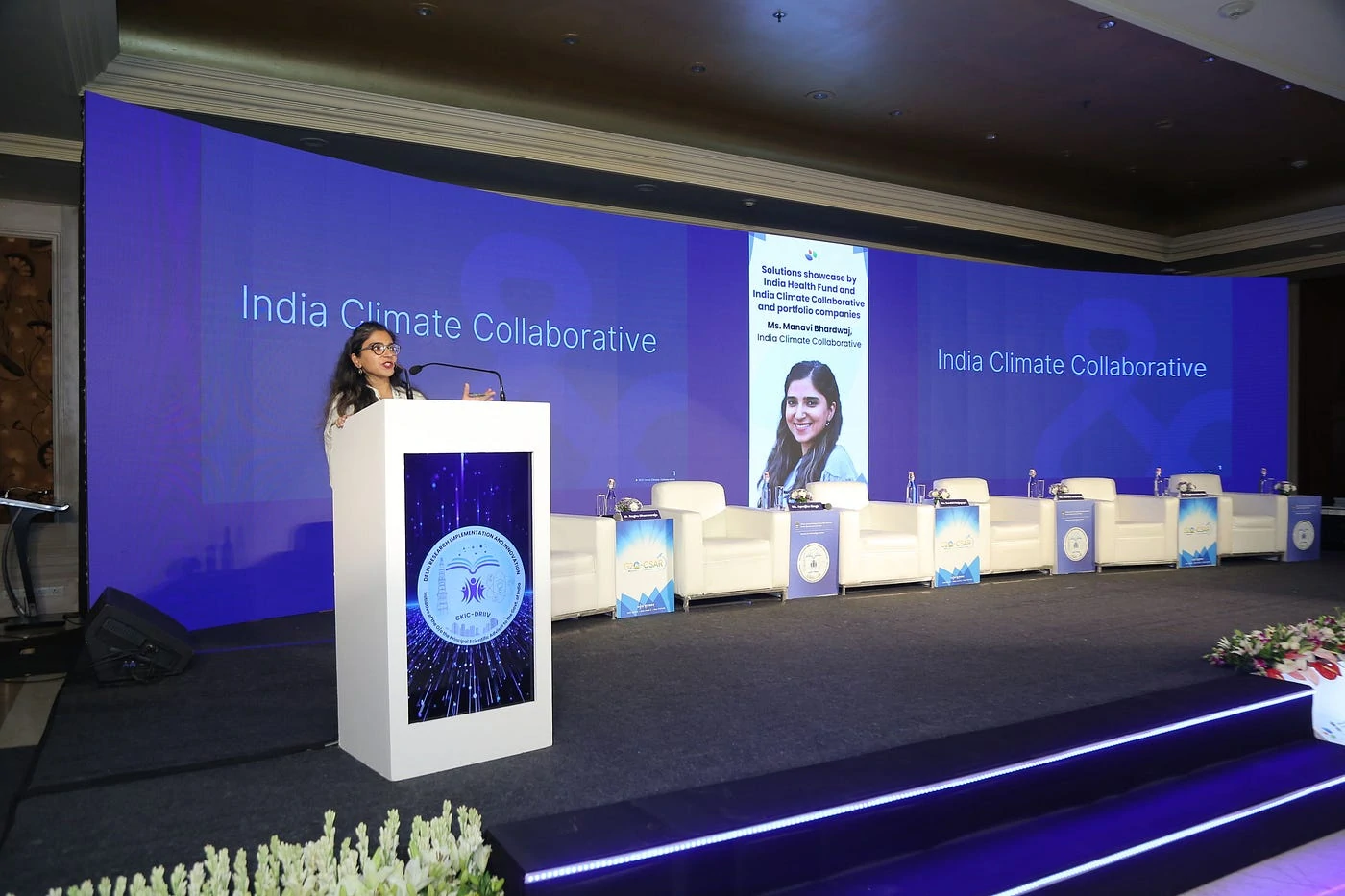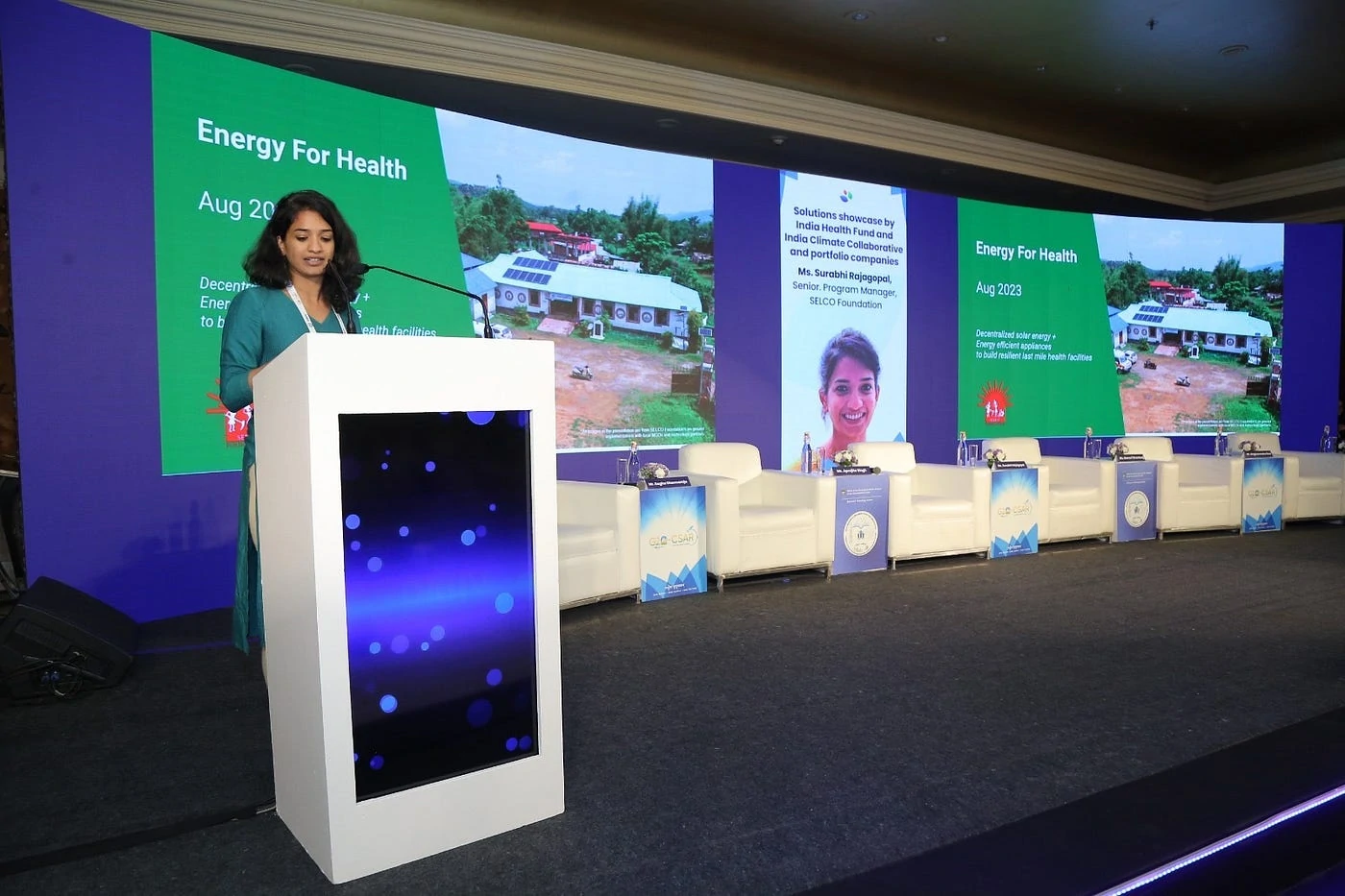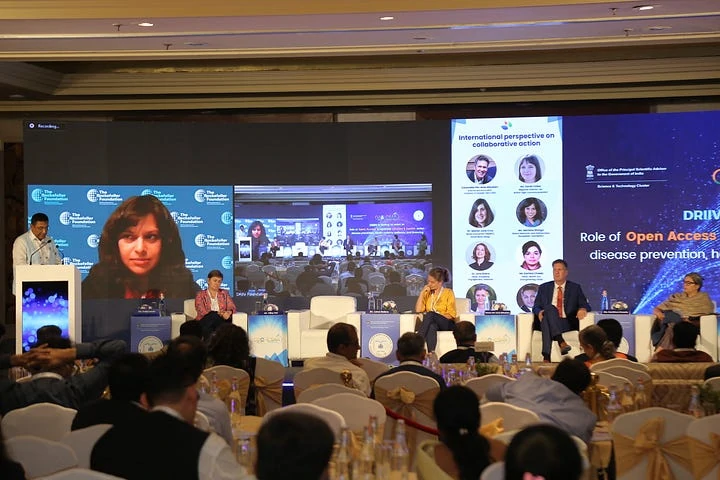Innovative climate and health solutions at G20 Side Event
Manavi Bhardwaj, Senior Manager, ICC, reflects on discussions at the DRIIV’s G20 Chief Scientific Advisers Roundtable Side Event held on 8 August, 2023, what innovative solutions that address climate and health challenges look like, and key takeaways for donors from the event.
Addressing the intricate interplay between climate change and public health hinges on collaborative efforts to showcase inventive solutions. On 8 August, 2023, DRIIV (Delhi Science & Technology Cluster, Principal Scientific Advisor to Government of India initiative), with the India Climate Collaborative (ICC) as one of the knowledge partners, hosted a G20-Chief Scientific Advisers Roundtable side event on “Role of open access in equitable
climate and health action: Disease prevention, health systems resilience, and financing.”
A diverse assembly of stakeholders, including governmental bodies, multilateral development banks, international philanthropies, research institutes, corporate entities, non-governmental organisations, and embassies, were present at the event.
The event featured an exclusive session to showcase climate and health solutions, thoughtfully curated by the ICC and the India Health Fund. We shed light on our supported initiatives, highlighting their potential to enhance health outcomes amidst climate-related challenges.

Manavi Bhardwaj, Senior Manager, ICC
We presented a number of innovative climate and health solutions that we support, including:
CEEW’s Climate Risk Atlas, which provides localised vulnerability insights for informed disaster preparedness and adaptation planning — including building resilience of critical infrastructure such as health infrastructure;\
Bharat Agroecology Fund’s efforts to strengthen community health and resilient food systems through agroecological natural farming practices; and,
SEEDS’ ingenious disaster e-wallet AKSHVI, leveraging AI to quantify climate-induced loss and damage, which includes direct and indirect health impacts due to climate-related extreme events and direct aid to affected communities.
We also highlighted climate projects with health-related co-benefits that are featured on the
ICC’s recently launched climate solutions platform called Earth Exponential, underscoring the inherent connection between climate and public health.
The dialogue was enriched by our partners, Mahila Housing Trust and SELCO Foundation. Mahila Housing Trust shared their initiatives on building resilience to health impacts that can be caused by heat stress and flooding, and improving living and working conditions for climate-vulnerable urban communities. SELCO Foundation highlighted the role of decentralised solar energy and energy-efficient appliances in bolstering the resilience of last-mile health facilities.
Additionally, the ICC invited our partner Rockefeller Foundation for another panel discussion on international perspectives on collaborative action that engaged embassies and international agencies. Manisha Bhinge, Managing Director for Health, Rockefeller Foundation shared insights from their climate and health portfolio.

Surabhi Rajagopal, Senior Program Manager, SELCO Foundation.

Manisha Bhinge, Managing Director for Health, Rockefeller Foundation.
Key takeaways for donors on how to solve for climate and health
The event underscored the growing urgency of breaking the silos between the health and climate communities, the need for quality climate and health data to make informed decisions when designing initiatives, and the role of open access in driving equitable and impactful climate and health actions. It provided a platform for collaboration, knowledge exchange, and unified efforts to address the intertwined challenges of climate change and public health.
There is growing emphasis on mainstreaming health in the global climate change agenda and vice versa — as evident in the G20 health agenda under India’s G20 Presidency, and a dedicated thematic day on health and the first ever climate-health ministerial at the upcoming UN Climate Change Conference COP28 in Dubai later this year. The donor community in India must also mainstream climate and health priorities in their portfolios, considering the following:
Three in four districts in India are vulnerable to extreme climate events. Any philanthropic support aimed towards the wellbeing of vulnerable communities must also take a climate
sensitive lens. Further, based on the spirit of leaving no one behind, vulnerable communities to whom support does not reach easily — such as urban low-income settlements, remote rural and tribal communities, and communities in underfunded geographies such as the northeast — must be included in the purview of beneficiaries. To maximise the reach and impact of funding, and identify such hotspots and communities, programmes must also be data-informed.
The “One Health” approach must be recognised, which emphasises the interlinkage between human, animal, and environmental health. Protecting and restoring nature as our life support system must also be integrated into programmes that fund people-focused climate solutions. Further, the impact of climate change on the health of biodiversity and ecosystems needs urgent attention.
The discourse on health includes both physical and mental health — the impact of climate change on the mental health of affected communities, who are also confronted with the emotional burden and trauma of loss and damage, needs urgent attention as well.
Stay tuned for upcoming conversations on the interplay between climate change and health in India!





